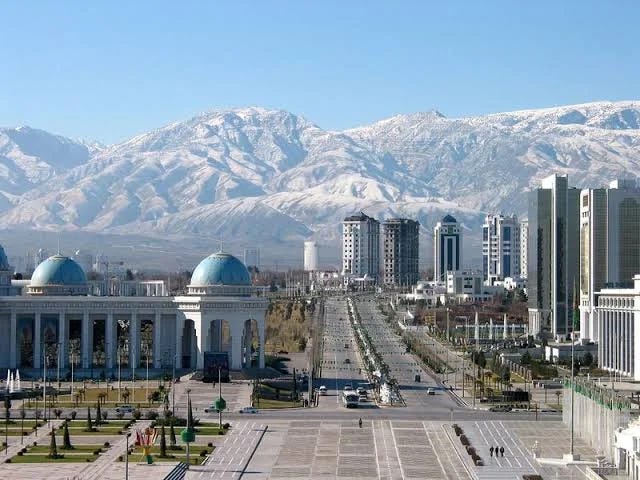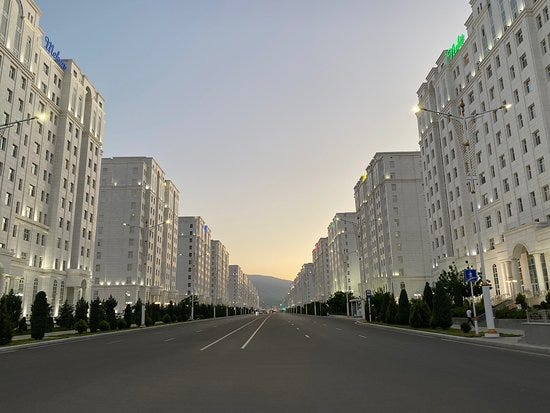The case for National Authoritarianism
The case for National Authoritarianism will include my views on how a Nation can serve its people through authority and National Pride.
Whenever the term “authoritarian” is used, the first thing that comes to the mind of most is either George Orwell’s “1984” or “Animal Farm.” Both display the scenes of a society that is run by those who hate their population. Unfortunately, that seems to be the case in many Western nations today where people are investigated by the police for petty jokes about politicians and even charged & jailed for posting memes on the internet. Threatening to extradite & jail citizens of foreign nations for online posts also isn’t off the table for the UK during the riots this summer. Orwell would be spinning in his grave seeing the state of his nation. But what if there was an alternative to this while still maintaining a strong central government that serves the people and their interests? The reason that there needs to be a strong government is also to tackle the insane levels of crime in the democracies of the West, where there are cities with thousands of shootings every single year. For example, in Chicago, there were 2,450 shootings and 617 homicides in 2023 alone; those numbers are inexcusable for one of America’s most iconic cities. How can it be that cities like Tashkent, Ashgabat, & Dushanbe are all much poorer than Chicago but are still much safer and more welcoming to families? The answer is simple. There is much tougher policing in those cities than in American cities like Chicago, New Orleans, St. Louis, Memphis, Baltimore, Detroit, etc.
How could parts of Charm City end up looking like this? It must be the government’s responsibility to look after its cities and neighborhoods.
Ashgabat is the capital of Turkmenistan, which used to be part of the Soviet Union. Today it is considered one of the most authoritarian and undemocratic nations. It is also one of the only unapologetically ethnocentric countries. The government manages the majority of the economy, and most people work for the government. Turkmenistan considers itself to be a secular democracy, but outside sources claim it to be a dictatorship. There is limited private property, and the media is largely controlled by the state. It is unlike North Korea in that Turkmenistan has a diaspora population and its citizens can travel internationally. The Economist Democracy Index ranks it as one of the most undemocratic countries. Most people have never heard of Turkmenistan due to its neutrality and having no enemies. North Korea, on the other hand, is known by almost all Americans due to its nuclear program and how much it is covered by Western media. Although we can complain about the lack of private property in Turkmenistan, there should be little to complain about their street crime. The nation truly puts its people first and is proud of their heritage. One look at their state television’s startup will make you jealous of their national pride.
On the other hand, Western state television, like the BBC, recently launched its own show, titled Smoggie Queens, in which “a quirky bunch of LGBTQ+ pals embrace their identities, finding solace and joy within their community's small but vibrant pocket.” You can decide whether you would watch the former or the latter.
Those of us who are descendants of people from former Soviet nations are aware of the oppression and hardships that our family had to go through, but we are also alert to the fact that many of our elder relatives feel a strong feeling towards Soviet nostalgia. As a young boy, I always wondered how America, the “Greatest nation” on earth, could also have some of the most dangerous cities, while some of the poorest nations, like Turkmenistan, Tajikistan, & Uzbekistan, have some of the safest cities in the world. Belarus is also considered safe while not being a wealthy nation. Ultimately, it all comes down to authority. The government and the police in those nations do not allow hooliganism or crime to run rampant in their cities. We have seen a similar crackdown on crime by Salvadorian President Nayib Bukele, which led to him winning re-election with nearly 85% of the vote.
The problem with authoritarian regimes, of course, will always come down to external forces. Tunisia was largely considered a police state until the revolution that lasted less than a month toppled the government. The Revolution was led by external sources stating the overwhelming corruption in the government. There, of course, were many other issues in the country, like problems with unemployment and government repression as a whole, but there is no doubt that social media platforms like Facebook played a key role in getting the revolution going. Turkmenistan, on the other hand, will most likely not be having a revolution anytime soon due to its censorship of foreign media. Platforms like Youtube, X, Facebook, & WhatsApp are all banned in favor of national outlets. I am not going to act like Turkmenistan is perfect, and I am sure that the people face difficulties, but from how things seem, the people are not starving there with an average male weight of almost 170 lbs & an average female weight of almost 150 lbs for ages 18-69. Belarus, on the other hand, got relatively close to toppling Lukashenko in 2020, but after the government’s crackdown on dissent, it seems as though there won’t be much trouble in the presidential election next month where Lukashenko is expected to win. There seems to be more freedom in Uzbekistan than in any of the previously stated post-Soviet nations. Foreign media is more accessible, yet there is still a strong central government that is tough on crime. Tajikistan is considered more authoritarian than Uzbekistan but is more free than Turkmenistan. Dushanbe also is a nice capital city. Its mayor is Rustam Emomali, the son of President Emomali Rahmon. Rustam is expected to succeed his father as the nation’s president in the 2027 elections. The complaint that many have with the Uzbek and Tajik governments is that they do not provide enough employment opportunities for their citizens, forcing their citizens to become migrant workers in countries like Russia and Türkiye. Foreign remittances make up a large percentage of the GDP of Tajikistan. Turkmenistan & Belarus do a better job at employing their citizens than the previously mentioned nations. The unemployment rate in Belarus is quite low, and although some say there is a high unemployment rate in Turkmenistan, it is difficult to tell if that’s true since the government does not release much data internationally, but I can’t imagine Turkmenistan having a population just sitting around and not doing anything considering that they have the 5th most proven natural gas reserves in the world. They sell much of their gas to China, which has led to the country being able to build their beautiful capital city of Ashgabat.
The most difficult part of creating an authoritarian regime is even getting power. I will not pretend like I know how to take power, but it is clear that through democracy, there is little chance of that happening in countries with large populations. That is possible in El Salvador due to it being a small country, but the Central Asian countries all became authoritarian after the fall of the Soviet Union due to the tradition of having a strong government. In Tajikistan, President Emomali Rahmon was only able to fully obtain power due to his victory in the nation’s brutal civil war in the 90s. Even as recently as Trump's last few months in office, America was still opposing Tajikistan and Turkmenistan on the grounds that they oppose religious freedom for their citizens. This is most likely due to their governments going after those they suspect of being involved in radical Islam and persecuting them, especially after the Crocus City Hall massacre, where some of the perpetrators were Tajik citizens. I don’t think that any Western nations with large populations will become authoritarian anytime soon. If anything, there is a better chance of nations like El Salvador becoming authoritarian due to the small population and relative poverty in those countries. Western oligarchs would never allow an open authoritarian to take power in their nation ever again.
I am not going to defend every single action of the regimes previously mentioned. But it is clear that nations like Turkmenistan, Tajikistan, Uzbekistan, Belarus, & El Salvador are all more patriotic than Western nations and do not put up with the insane crime that we have in the West. I have heard of people from Almaty, Kazakhstan, even complaining about how dangerous American cities are compared to Almaty. How could the wealthiest nations in the world become so dangerous for their own citizens? It is because of their worship of democracy and “freedom” that we have fallen to the state that we are in. Also, due in large part to the idea of a melting pot where we can put all different types of people in one nation and act like everything will work out fine. We see this shown in the idea that we are all just individual humans and have no loyalty or affinity to our own people’s traditions or customs. How can someone claim to be an individual? Were they not raised by their parents, their teachers, their friends, and all that have surrounded them? No human is just an individual. We were raised by those like us, and we will always contain that innate bias in our hearts.









I agree; we are not all individuals. That’s a Thatcherite/Reaganite con, introduced as a part of their assault on the social fabric of their respective countries and constantly rehashed or reheated and served as something new such as Neoliberalism or ‘Trump/MAGA’ in order to keep us all at each other’s throats rather than organising against their parasitic capitalist agenda.
My wife grew up in the former Soviet Union, and she has some of that nostalgia that you mentioned. It's understandable.